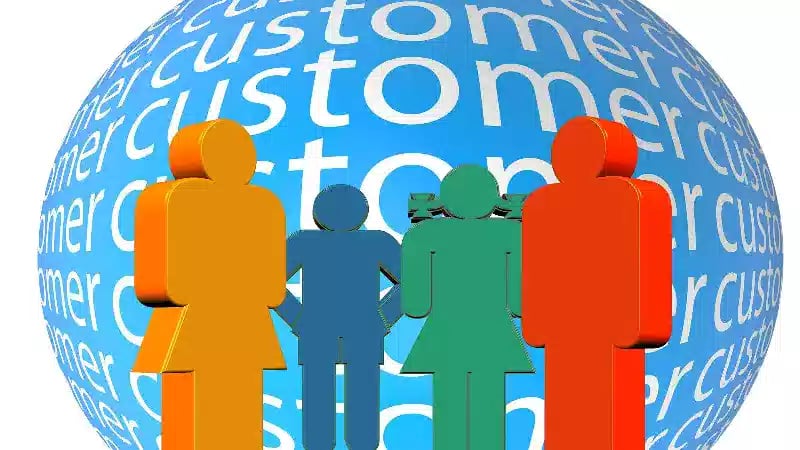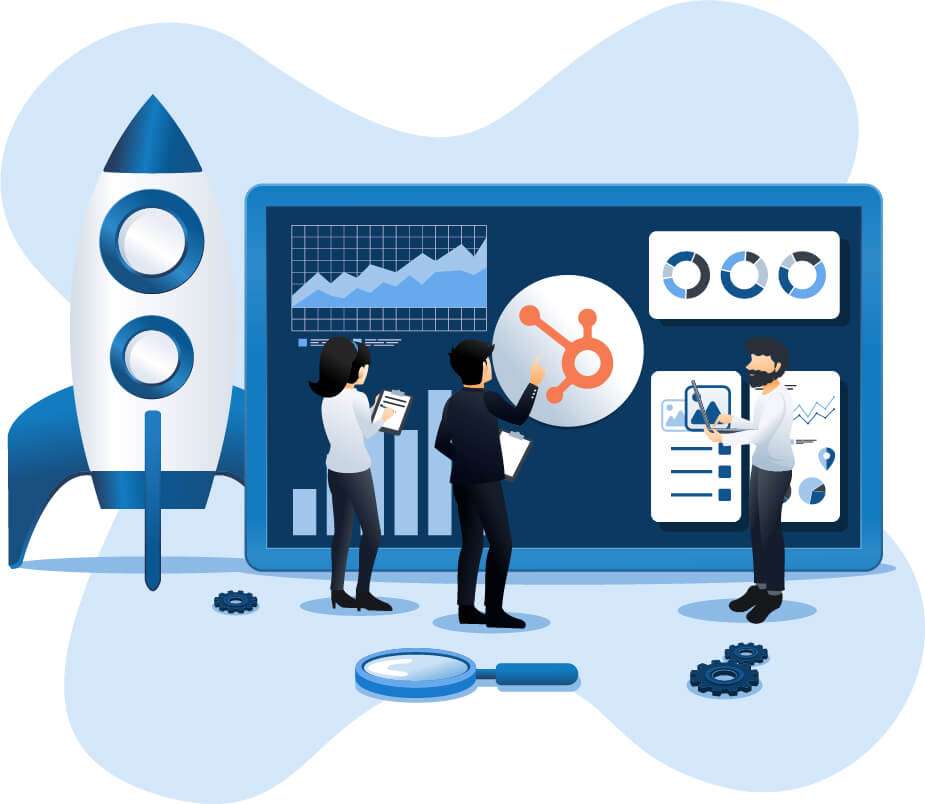Are You Getting the Most Value From Your HubSpot Subscription? The HubSpot Admin Accelerator program is designed to optimize your HubSpot investment.
What is CRM and Why Is It Important?
Customer relationship management, or CRM, is a term used to encompass various activities companies undertake to build, maintain, and nurture trusting relationships between themselves and their customers.
This can include direct interactions, such as marketing, sales, and customer service, or indirect activities, such as sales forecasting, development of buyer personas, and trend analysis.
CRM: OK, so what is it?
The term often refers to the software (and providers) organizations use to manage and maintain these external customer relations. In recent years, significant developments in AI, cloud computing and storage, and robotic process automation (RPA) have made huge strides in this software industry sector.
So with all that information at hand, just what is CRM? Well, it's all of the above. Organizations have significant technological advancements, the old-school approach of human interactions, and putting the customer first. The trick to staying ahead in today's rapidly changing business climate is to mix and match these approaches to benefit the company and the customer.
Bottom line, and why it matters
Building a solid, trusting relationship with your customers is the best way to keep them delighted with your company, product, and service. This is how the best companies in the world keep their customers returning (not to mention the word-of-mouth marketing potential!).
Why this should matter to you, no matter the size of your company:
-
Polls continuously show that it's all about the strength of a company's customer support. Nearly 80% report having canceled contracts due to poor customer service.
-
Word-of-mouth marketing is enormous. Gone are when you could just sell something and hope the customer goes away happy. They'll let you know, and more importantly, let all their friends and family know. That goes for the positive, as well as the negative, experiences.
-
Keeping an existing customer happy is far less costly than finding and onboarding a new one.
-
The technology exists to automate large swaths of this process. So the marketing team can focus their energy and time on the real-time interactions that matter most, leaving the updated emails and customer contacts to the software.
Ways to strengthen your company's CRM: Technology
There are three areas to focus on to strengthen your company's CRM: transparency, responsiveness, and availability. There are no surprises here; technology can be a vital asset in these areas.
Transparency
CRM software mostly comes with automation baked right in... it's just up to you to configure it. These tools can guide the customer through most of their buyer's journey, leaving only exceptions or wildly divergent situations for someone to handle manually. When maintaining your CRM database, the software can handle everything from initial contact to data collection and shipping notices.
-
When a new site visitor signs up for email updates, their contact information is captured and entered into your CRM, which emails the customer a confirmation message.
-
When a purchase is made or a trouble ticket is entered, regular update emails can be scheduled to alert the customer to either the status of their order or where in the queue their ticket is, along with an estimate of when they'll see resolution.
-
And when an order is shipped, the customer will receive detailed tracking information automatically.
This is a brief example, of course, but it demonstrates the transparency people expect from the companies they do business with. Suppose any step is missed or is not kept abreast of developments in their order/ticket. In that case, today's customer has no problem jumping ship for a competitor who will keep them fully updated throughout the customer journey.
You Might Also Like
Responsiveness
Implementing AI Chatbots is the next wave of automation to consider when improving your customer experience. These bots allow customers to open a chat conversation at any time, even outside of office hours, and potentially have their questions answered immediately. The AI behind the chat partner learns on the job, so the more of these completed interactions, the better the answers the software provides will get. Chatbots won't replace your customer service representatives; however, this technology can't be beaten when augmenting their ability to respond immediately or nearly.
Availability
As mentioned above regarding responsiveness, chatbots make 24-hour customer service possible without outsourcing to a call center around the globe or employing overnight workers. With automation like this, your customers can log on and get help within moments, anytime. That level of availability is becoming a necessity in today's global marketplace.
Automation is CRM's best friend.
The ability to automate more and more easily repeatable, rote tasks such as those outlined above is making it even easier for companies to provide the level of customer service that the public is coming to expect. Built-in automation in the best commercial CRM solutions and third-party software such as chatbots (increasingly available in ITSM ticketing systems) lead the way toward a more sustainable customer service model.
Maintaining a robust presence on social media—so potential and existing customers alike can interact with a real person representing the brand in a consistent voice—adds up to the always available, easily trusted retail partner that will excel in today's market.
Are you looking for more information about CRM? Do you want to start with HubSpot's "forever free" CRM? Contact us today.
This content is also available in:
- German: Was ist CRM und warum ist es wichtig?
- Spanish: ¿Qué es CRM y por qué es importante?
- French: Qu'est-ce que la CRM et pourquoi est-elle importante?
- Italian: Cos'è il CRM e perché è importante?
- Romanian: Ce este CRM și de ce este important?
- Chinese: 什么是客户关系管理(CRM),为什么它如此重要?










Leave a Comment